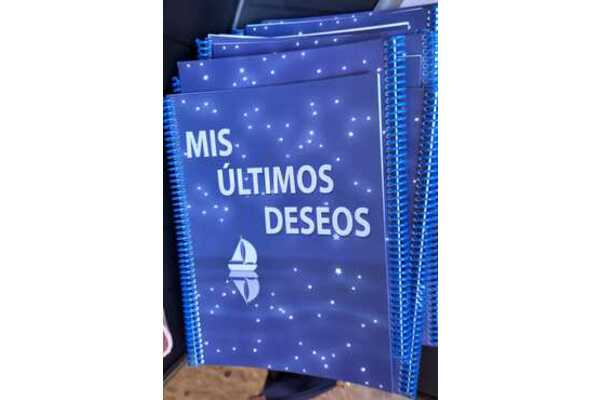
In March 2021 Spain approved a law regulating the practice of Euthanasia.
Below is a copy of this law and a translation.
The below is a translation of the information found on the CAIB website explaining how to request Euthanasia and how the request will be processed.
What is Euthanasia?
Euthanasia is when a person who requests to bring forward their death is given medical help to die, providing they meet the legally established criteria.
Who can request Euthanasia?
Any person who is suffering from a serious incurable illness or a serious chronic debilitating condition that causes suffering considered unacceptable, that cannot be relieved by any other method, as laid out by the law and certified by an attending physician.
The person must be of legal age and be a Spanish national, a legal resident in Spain or have been registered with their local town hall for more than 12 months, and at the time of the request be fully conscious and able.
Serious incurable illness: one that causes constant, intolerable physical or mental suffering, that cannot be alleviated and is intolerable for the person, along with a limited life expectancy and progressive fragility.
Serious, debilitating chronic condition: referring to limitations that have a direct bearing on the physical autonomy of the patient and their daily activities, meaning they are unable to care for themselves, express themselves or have viable relationships, associated with constant, intolerable physical or mental suffering, with a certainty, or high probability, that these will persist over time with no chance of a cure or noticeable improvement. At times, it may involve total dependence on machines.
How is it requested?
Any person who voluntarily and independently wants to request help to die must make the request in writing in the presence of a medical healthcare professional. The document must be signed and dated by the patient and the medical healthcare professional.
If the medical healthcare professional who signs the document is not the patient’s attending physician, it will be given to said physician and included in the patient’s clinical file.
Who is the attending physician?
It can be any doctor on the person’s medical team, who knows their case and is chosen by the patient. It can be at local or hospital level in either the public or private field.
Can a doctor refuse to take part in the process?
Yes, they can declare that they are conscientious objectors in providing help to die. If a doctor refuses then another medical professional from the team will be asked.
If at the moment of making the request a person is unable to sign and date the document, can someone else do it on their behalf?
Yes. The law accepts that if due to personal circumstances or health the person is unable to sign and date the document, other methods can be used that allow them to record their wishes, or another capable adult can sign and date the document in their presence, clearly stating that the patient is unable to sign the document and the reasons why.
What happens once it has been requested?
Once the first request has been made the attending physician will verify that the person meets the requirements and reflect on the pros and cons of the person's health condition. Then the patient must present a second request and the doctor in charge will request an assessment from a consulting doctor to confirm that the requirements are met.
Then the case will be sent to the Comisión de Garantía y Evaluación.
If the case is accepted, it may take between 45 and 50 days from the first request until the procedure takes place .
Who is the consulting doctor?
A doctor trained in the field of the ailment that the person requesting the help to die is suffering from, they cannot be on the same team as the attending physician. This doctor will make a case assessment and submit a report.
What is the Comisión de Garantia y Evaluacion?
It is a multi discipline administrative body made up of medical and legal personnel, it will have at least seven members whose expertise will guarantee the clinical and legal safety of the process and who, a posteriori, will assess how it was carried out.
Who authorises the medical help to die?
The final authorisation is granted by the Comisión de Garantía y Evaluacion, after they have received reports from the attending physician and the consulting doctor.
What happens if during the process the person decides to discontinue the request?
The patient can revoke/annul the request at any time during the process.
What happens if the request is denied?
Any requests that are denied can be appealed in the contentious-administrative court.
Will confidentiality be respected during the process?
Yes, all information handled during the procedure will be stored in the patient's medical history according to Organic Law 3/2018, 5th of December, regarding personal data protection and guarantee of digital rights.
Since when can euthanasia be requested in Spain?
From the 25th of June 2021.
Where can the medical help to die be administered?
It can be administered in the person’s home or in private or public hospitals.
Once the permission to administer medical help to die has been approved, when will it be administered?
It will be administered within 2 days at the most, however the person may delay it as long as they desire.
How will the medical help to die be administered?
Direct administration of a substance by a competent medical professional.
The prescription of a substance so the person can auto-administer it and cause their own death.
The person will choose which of these methods will be applied.
How is death by euthanasia legally registered?
Death by means of medical help to die is considered a natural death.
Does any of it have to be paid for?
No, this is included in the common services of the National Health system and is publicly financed.









